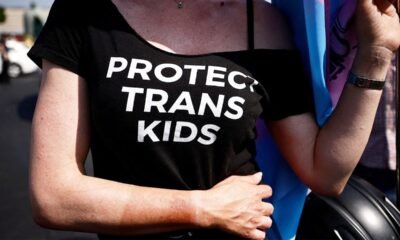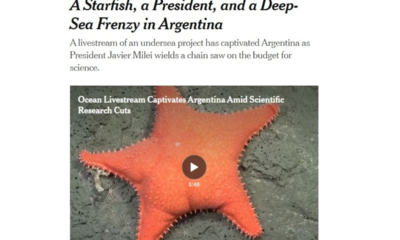INTERNACIONAL
El papa León XIV recibió al enviado del patriarca Cirilo en el Vaticano en un gesto de acercamiento con la Iglesia Ortodoxa Rusa

El Vaticano fue escenario este sábado del primer encuentro entre el papa León XIV y el metropolita Antoni, jefe de relaciones exteriores de la Iglesia Ortodoxa Rusa y emisario del patriarca Cirilo, según comunicó el patriarcado de Moscú. El encuentro se produce en un contexto de relaciones distantes entre ambas Iglesias, marcadas por la postura del patriarca ortodoxo frente a la guerra en Ucrania.
Durante la reunión, Antoni transmitió a León XIV “los saludos en nombre de Cirilo y las felicitaciones por su elección como Primado de la Iglesia Católica Romana”, informó el comunicado del patriarcado ruso. El papa, en respuesta, expresó su gratitud a Cirilo “por sus buenos deseos y destacó la importancia de desarrollar las relaciones con la Iglesia Ortodoxa Rusa”. Según la nota, el diálogo incluyó cuestiones sobre el estado de las relaciones ortodoxo-católicas y los conflictos internacionales, con especial foco en Ucrania y Medio Oriente.
En el curso de la conversación, Antoni denunció ante el pontífice la situación de la Iglesia Ortodoxa Ucraniana, aludiendo a una persecución sufrida en el actual contexto de conflicto armado. En declaraciones previas al diario La Repubblica, el metropolita manifestó su expectativa de debatir las “perspectivas de desarrollo de las relaciones entre la Iglesia Ortodoxa Rusa y la Iglesia Católica”, subrayando la necesidad de fortalecer la cooperación cristiana en un “mundo en rápida secularización”.
El papa León XIV, primer estadounidense —nacionalizado peruano— en asumir el cargo, accedió al pontificado en mayo y desde entonces ha promovido esfuerzos diplomáticos en favor de la paz. Hace semanas recibió en el Vaticano al presidente ucraniano Volodimir Zelensky y mantuvo conversaciones telefónicas con el presidente ruso Vladimir Putin. León XIV ha apelado al Kremlin para que realice un “gesto” a favor de la paz y propuso, a mediados de mayo, la mediación del Vaticano en las negociaciones entre las partes en conflicto. Sin embargo, el Kremlin descartó la Santa Sede como punto neutral para un diálogo, por lo que las conversaciones continuaron en la ciudad turca de Estambul.
El papa y el patriarca Cirilo mantuvieron en 2016 un histórico encuentro en Cuba, aunque desde el inicio de la guerra en Ucrania sus relaciones se enfriaron. Cirilo apoya abiertamente la invasión rusa, que califica de “guerra santa”, postura que motivó un cruce de declaraciones con el predecesor de León XIV, el papa Francisco. No obstante, el metropolita Antoni, nombrado jefe de relaciones exteriores en 2022, continuó los contactos con el Vaticano y estuvo presente en representación de Cirilo durante el funeral de Francisco.
En la entrevista concedida a La Repubblica días antes del encuentro, Antoni consideró que el anterior pontífice mantenía un “enfoque equilibrado” respecto a Ucrania, aunque señaló que desconocía de momento la posición de León XIV sobre el conflicto.

En un mensaje enviado este sábado a la asamblea nacional del movimiento católico Pax Christi en Estados Unidos, León XIV reiteró su llamado a la no violencia y recordó la importancia de que los católicos “se conviertan en creadores de paz en su vida cotidiana”. En el texto subrayó: “Entre los numerosos desafíos que nuestro mundo enfrenta actualmente, incluyendo los conflictos armados generalizados, las divisiones entre los pueblos y los desafíos de la migración forzada, los esfuerzos por promover la no violencia son más necesarios que nunca”.
León XIV también recordó el llamado que realizó al asumir el pontificado, afirmando que en la actualidad se necesita “una paz desarmada, humilde y perseverante”. Instó a los miembros de la Iglesia a que estén presentes “especialmente en las periferias”, y a que las comunidades locales sean “casas de paz” donde se practique la justicia y el perdón, reforzando así el papel reconciliador de la institución.
El metropolita Antoni ha ocupado la jefatura de relaciones exteriores del patriarcado de Moscú desde 2022, año de la invasión rusa a Ucrania. Anteriormente, desempeñó el cargo de enviado de la Iglesia ortodoxa en Italia, participando activamente en la interlocución entre Moscú y la Santa Sede en medio de un escenario internacional tenso.
(Con información de AFP y EFE)
Europe,Religion / Belief,VATICAN CITY
INTERNACIONAL
Trump and Putin’s relationship turns sour as president pushes for resolution with Ukraine
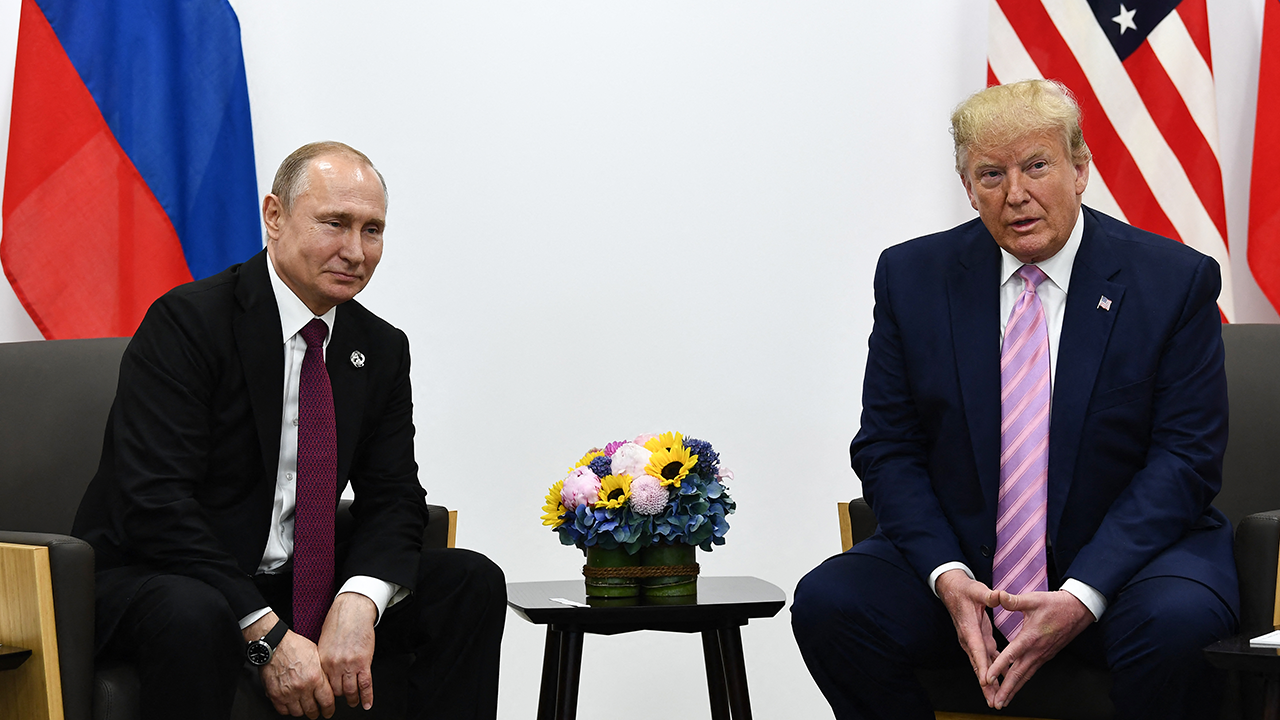
NEWYou can now listen to Fox News articles!
While President Donald Trump previously refrained from speaking ill of Russian President Vladimir Putin, those days are over.
The ongoing war between Russia and Ukraine has changed the nature of their dynamic. Although the two appeared to get along, at least publicly, during Trump’s first administration, their relationship has unraveled as the more recent conflict persists.
In recent weeks, Trump has refused to mince his words when asked about Putin. Trump said during a Cabinet meeting July 8 he was fed up with Putin and said he was eyeing potentially imposing new sanctions on Russia.
«We get a lot of bulls— thrown at us by Putin, if you want to know the truth,» Trump said. «He’s very nice all the time, but it turns out to be meaningless.»
TRUMP MOVES NUCLEAR SUBMARINES WEEKS AFTER PRAISING SUB’S POWER IN IRAN STRIKES
While President Donald Trump previously refrained from speaking ill of Russian President Vladimir Putin, those days are over. (Kremlin Press Office / Handout/Anadolu Agency/Getty Images)
John Hardie, Russia program deputy director at the Foundation for Defense of Democracies, said Russia started to attract ire from Trump dating back to March after Ukraine agreed to a 30-day ceasefire. But Russia has failed to get on board with a ceasefire.
«Really, since then, I think Trump has come to view the Russians as the main impediment to a deal,» Hardie told Fox News Digital Thursday.
Additionally, Hardie said that Trump has also grown frustrated that Russia will launch drone and missile attacks against Ukraine, even after directly speaking with Putin.
«What he’s sort of latched on to are these Russian drone and missile barrages,» Hardie said. «That really seems to resonate with him.»
Tensions only have continued to escalate between the U.S. and Russia since the July Cabinet meeting.
Trump announced July 14 that he would sign off on «severe tariffs» against Russia if Moscow failed to agree to a peace deal within 50 days. He then dramatically reduced the deadline to only 10–12 days — which ends Friday.
The decision to reduce the timeline prompted former Russian President Dmitry Medvedev to caution that «each new ultimatum is a threat and a step towards war.»
TRUMP LIFTS VEIL ON US SUBMARINES IN WARNING SHOT TO KREMLIN IN ‘CLEVER’ REPOSITIONING MOVE
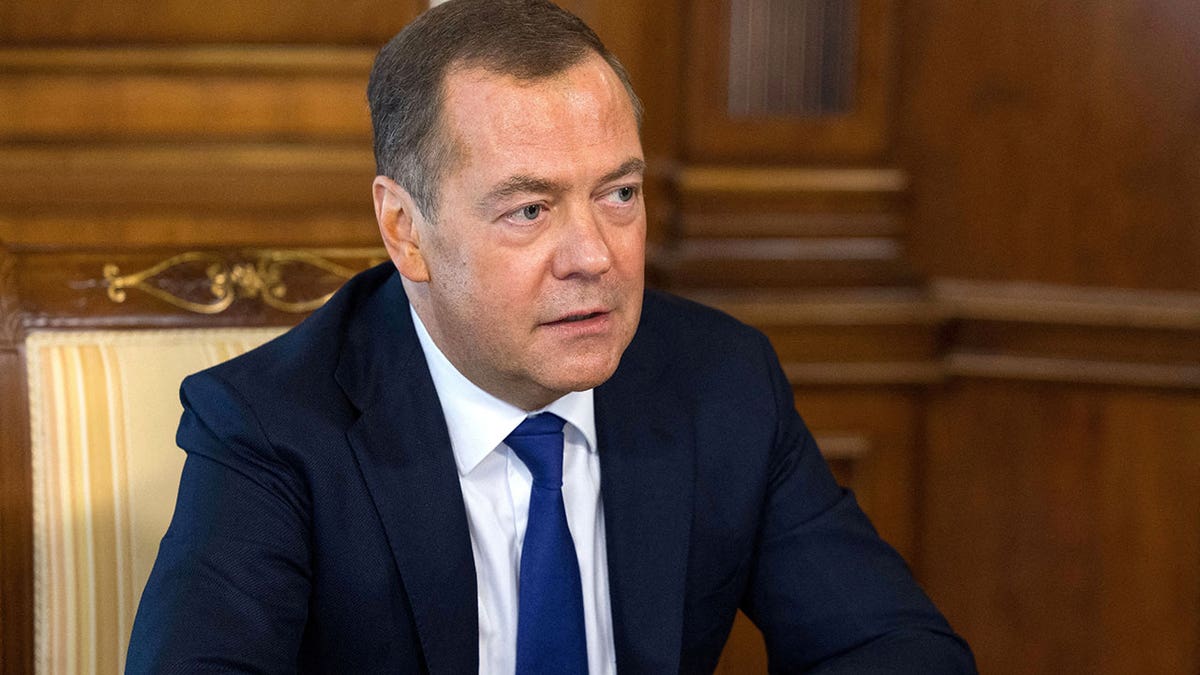
The decision to reduce the timeline prompted former Russian President Dmitry Medvedev to caution that «each new ultimatum is a threat and a step towards war.» (Sputnik/Yekaterina Shtukina/Pool via Reuters/File Photo)
In addition to economic sanctions, Trump responded to Medvedev and issued a rare statement disclosing that two U.S. Navy submarines would be moved in response to escalating threats from Russia.
«I have ordered two Nuclear Submarines to be positioned in the appropriate regions, just in case these foolish and inflammatory statements are more than just that,» Trump said Aug. 1.
Trump’s disclosure of the submarine presence puts additional pressure on Russia to come to the negotiating table, according to Bryan Clark, a retired submarine officer and director of the Hudson Institute think tank’s Center for Defense Concepts and Technology.
«We have used very sparingly submarines to try to influence adversary behavior before, but this is pretty unusual, to do it against a nuclear-powered adversary like Russia in response to a nuclear threat by Russia,» Clark told Fox News Digital Monday. «So I think this is trying to essentially push back on Russia’s frequent and long-standing threats to use nuclear weapons in part of the Ukraine conflict.»
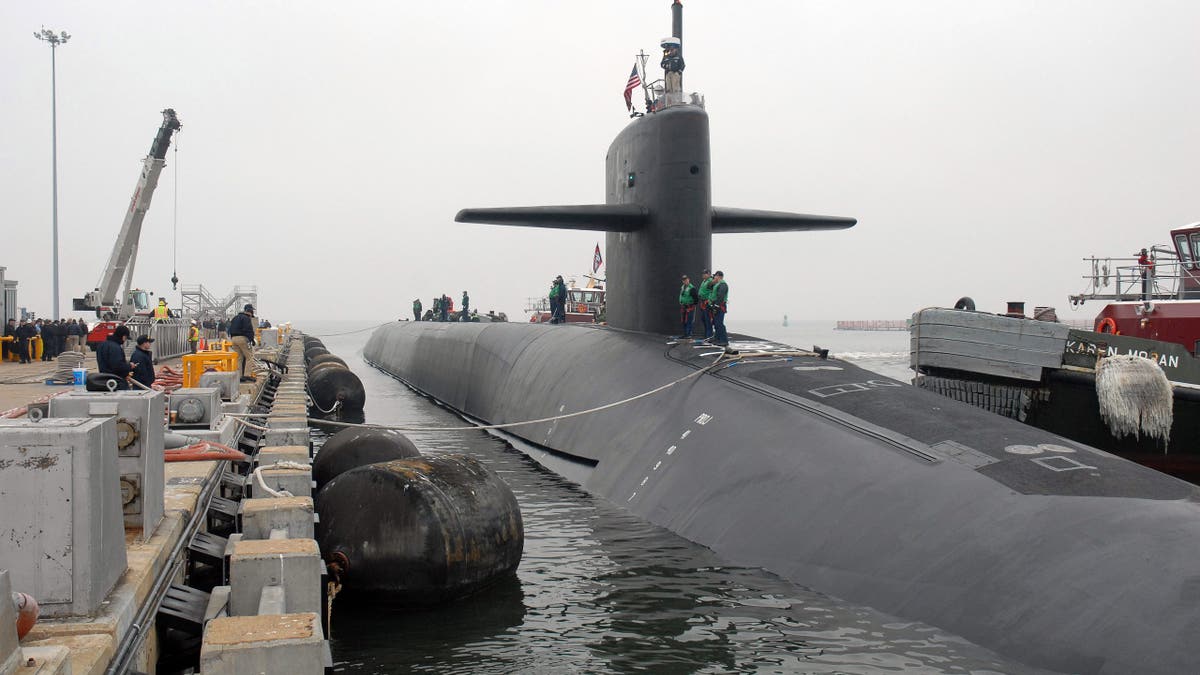
President Donald Trump’s disclosure of the submarine presence puts additional pressure on Russia to come to the negotiating table, according to Bryan Clark, a retired submarine officer.
Momentum is picking up on negotiations though, and U.S. Special Envoy Steve Witkoff met with Putin Wednesday.
Trump said in a post on Truth Social afterward that «great progress» was made during the meeting. And now, Trump and Putin are expected to meet face to face imminently in an attempt to finally advance negotiations to end the war between Russia and Ukraine.
Still, Hardie said he is skeptical that the meeting between Putin and Trump will result in meaningful progress.
«I don’t expect a summit to produce much,» Hardie said. «And I think Putin could try to use the summit to placate Trump and kind of buy more time continues assault on Ukraine, but I think his goal is he’d love to be able to enlist Trump in his effort to impose these harsh terms on Ukraine.»
Russia has pushed for concessions in a peace deal that include barring Ukraine from joining NATO, preventing foreign peacekeeper troops from deploying to Ukraine after the conflict, and adjusting some of the borders that previously were Ukraine’s.
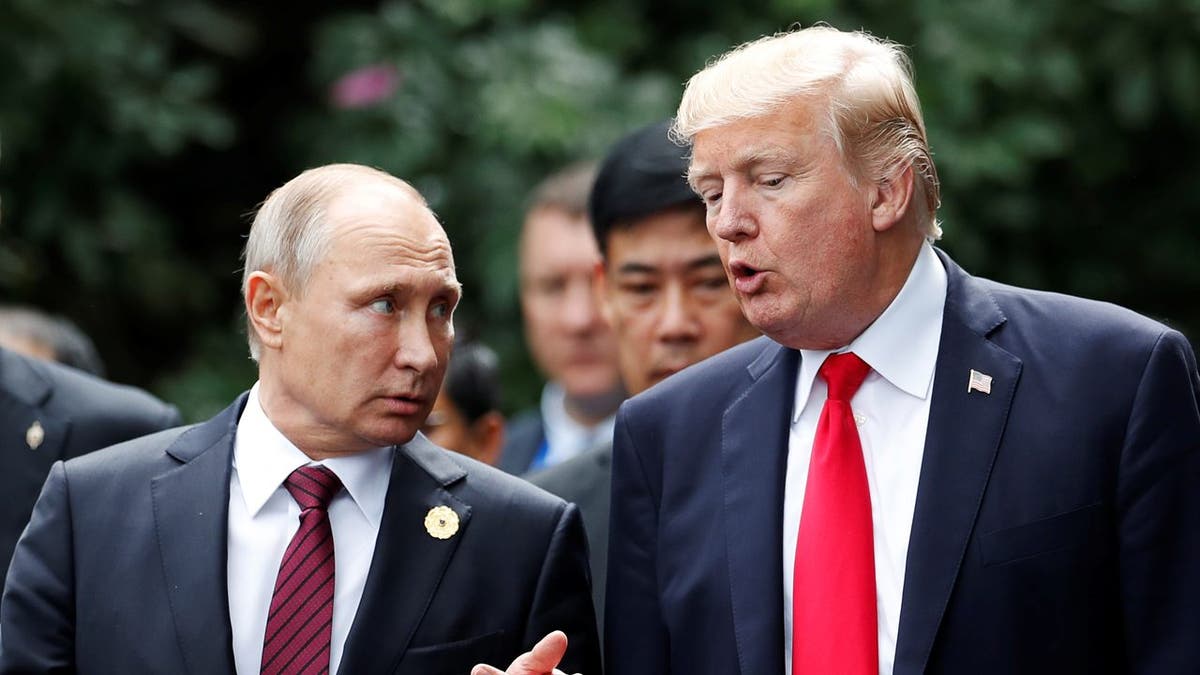
It’s unclear if Trump plans to announce any additional economic burdens upon Russia Aug. 8, 2025, in accordance with the deadline that he imposed demanding that Russia signal willingness to end the conflict. (Jorge Silva/Reuters)
It’s unclear if Trump plans to announce any additional economic burdens upon Russia Friday in accordance with the deadline that he imposed demanding that Russia signal willingness to end the conflict. But according to Trump, the ball is in Putin’s court.
«It’s going to be up to him,» Trump told reporters Thursday. «We’re going to see what he has to say. It’s going to be up to him. Very disappointed.»
The White House did not disclose any details regarding potential Friday sanctions, but said that Trump wants to meet with Putin and Ukrainian President Volodymyr Putin to resolve the conflict.
«The Russians expressed their desire to meet with President Trump, and the President is open to this meeting,» White House press secretary Karoline Leavitt said in a statement to Fox News Digital. «President Trump would like to meet with both President Putin and President Zelensky because he wants this brutal war to end. The White House is working through the details of these potential meetings and details will be provided at the appropriate time.»
white house,russia,ukraine,donald trump,vladimir putin
INTERNACIONAL
Trump to host Armenia, Azerbaijan leaders ahead of peace pledge as White House eyes Nobel Peace Prize
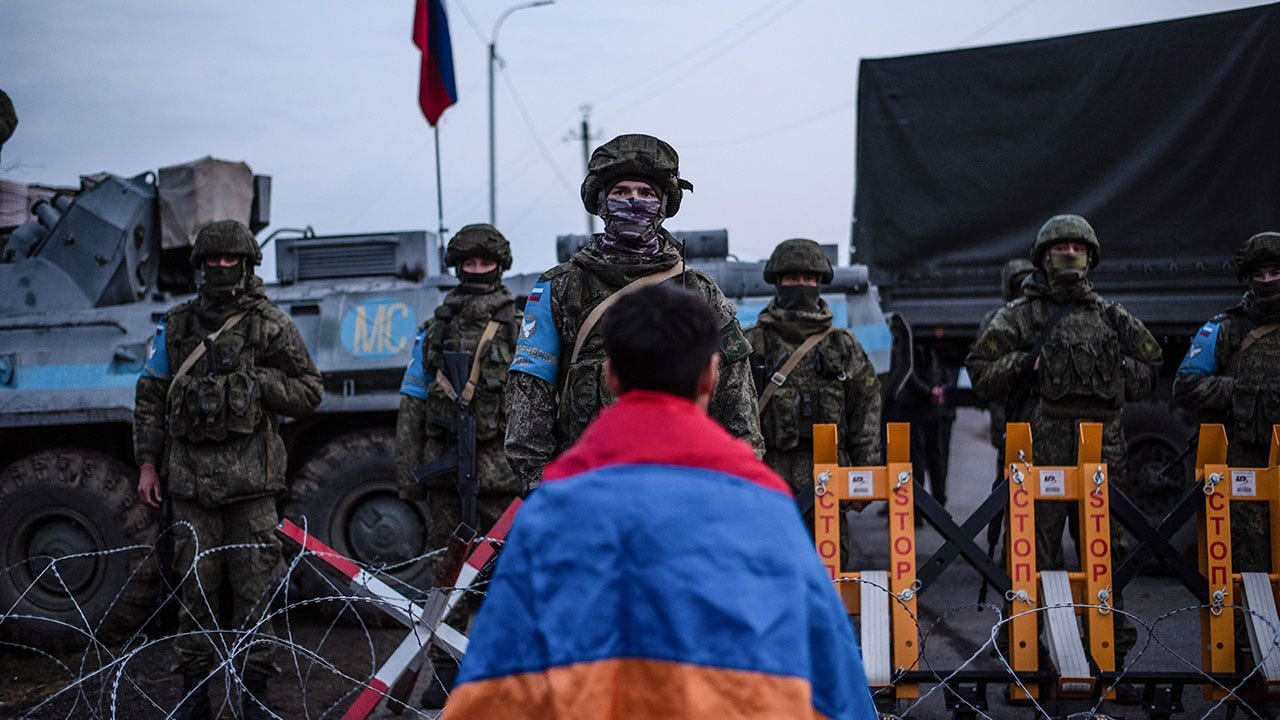
NEWYou can now listen to Fox News articles!
President Donald Trump will host the leaders of Armenia and Azerbaijan on Friday as he looks to secure one more peace deal under his belt following fighting that reignited in 2020.
«I look forward to hosting the President of Azerbaijan, Ilham Aliyev, and the Prime Minister of Armenia, Nikol Pashinyan, at the White House tomorrow for a Historic Peace Summit,» Trump said in a Thursday night social media post.
«President Aliyev AND Prime Minister Pashinyan will join me at the White House for an official Peace Signing Ceremony,» he added. «The United States will also sign Bilateral Agreements with both Countries to pursue Economic opportunities together, so we can fully unlock the potential of the South Caucasus Region.»
Azerbaijani President Ilham Aliyev, right, and Armenian Prime Minister Nikol Pashinyan meet in Abu Dhabi, the capital of the United Arab Emirates, on July 10, 2025. (Azerbaijani Presidency/Handout/Anadolu via Getty Images)
ARMENIA AND AZERBAIJAN MOVE TOWARD NORMALIZED RELATIONS AS THE FIRST BORDER MARKER IS PLACED
Despite the president’s comments, experts familiar with the ongoing negotiations have told Fox News Digital that the leaders are not expected to sign a formalized peace agreement, but rather a letter of intent following more than a year of negotiations.
However, even as an official peace agreement is not expected to be signed, the meeting is still viewed as a major win for not only regional stability, but for Trump as well.
«I believe they’ve had a significant position in this whole process,» Matias Perttula, director of Save Armenia, told Fox News Digital. «We just returned from Armenia over the last week [where] we had several government meetings, including with the national security advisor, the president of Armenia and a couple other ministries, and from what we can tell the engagement from the Trump administration has been a lot more robust than the Biden administration.»
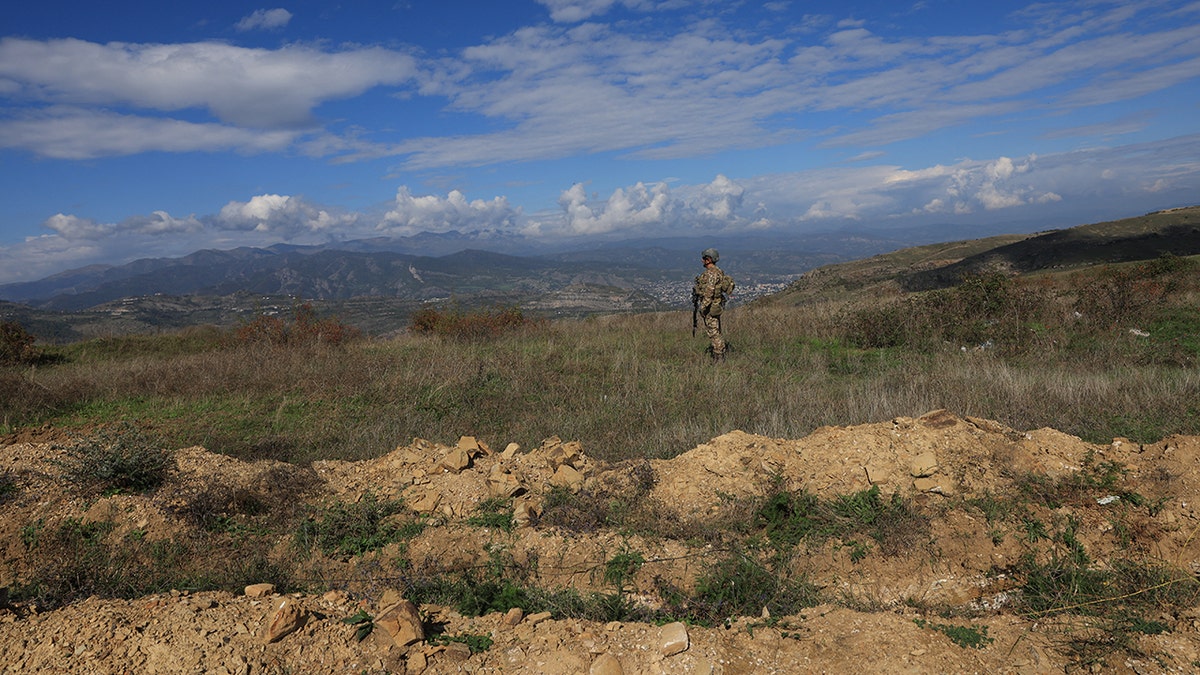
An Azeri serviceman stands near trenches at a former Armenian separatists military position in the village of Mukhtar (Muxtar) retaken recently by Azeri troops, during an Azeri government-organized media trip, in Azerbaijan’s controlled region of Nagorno-Karabakh, on Oct. 3, 2023. ( EMMANUEL DUNAND/AFP via Getty Images)
Azerbaijani President Ilham Aliyev and Armenian Prime Minister Nikol Pashinyan are each expected to meet with Trump prior to signing a pledge for peace between the two nations, which have been embroiled in, at times, brutal conflict since the late 1980s.
The conflict largely centered around the status of the Nagorno-Karabakh region, a mountainous area in Azerbaijan with a majority-Armenian population, but which declared independence in 1991.
While Armenia, along with the international community, never formally recognized the Nagorno-Karabakh Republic as an independent state, it became its chief financial and military backer.
The territory assumed a de facto role in Armenia until Azerbaijani forces overwhelmed the republic in a swift campaign in September 2023, prompting mass evacuations of ethnic Armenians before it was then dissolved on Jan. 1, 2024.
This region is expected to remain a major issue in the ongoing negotiations.
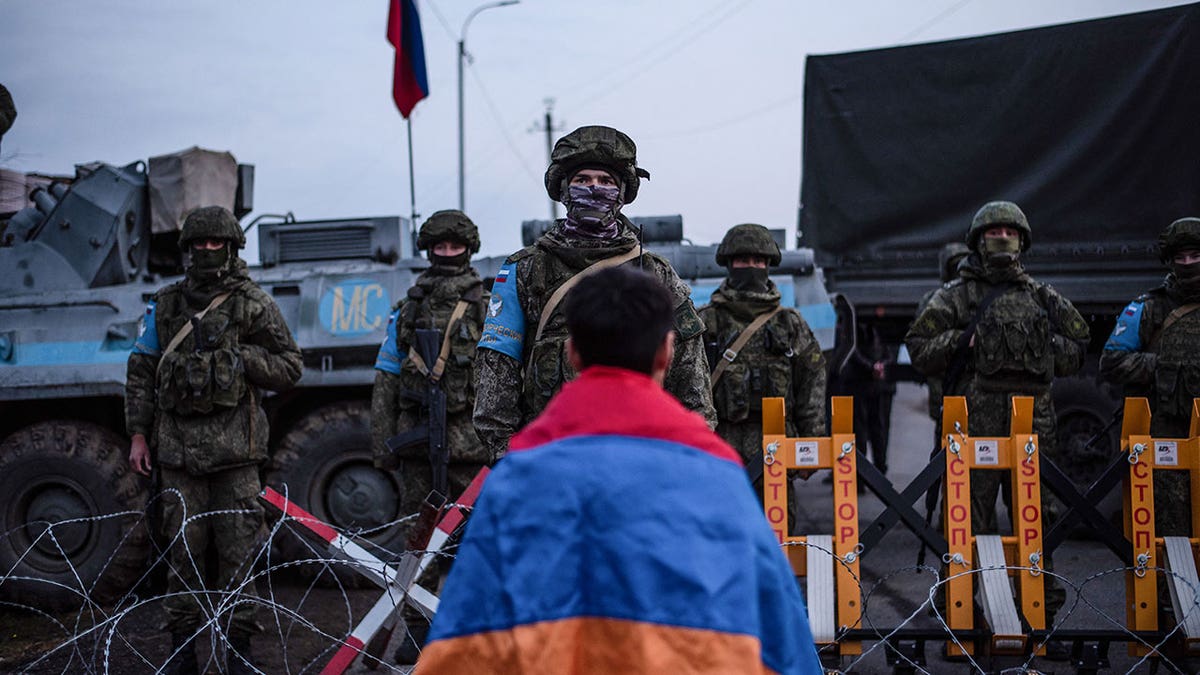
A protester wearing the Armenian national flag stands in front of Russian peacekeepers blocking the road outside Stepanakert, capital of the self-proclaimed Nagorno-Karabakh region of Azerbaijan, on Dec. 24, 2022. (Photo by DAVIT GHAHRAMANYAN/AFP via Getty Images)
ARMENIA’S PRIME MINISTER URGES SWIFT BORDER AGREEMENT TO AVOID CONFLICT WITH AZERBAIJAN
Though both nations announced in March that they had reached a consensus on finalizing a peace deal, several factors surrounding the mountainous area have prevented a finalized agreement from being reached, as witnessed in the July meeting between the leaders when they met in the UAE but failed to find a resolution.
Chief among Azerbaijan’s demands is that Armenia should amend its constitution and remove all references to the Nagorno-Karabakh territory. Though this demand is not a simple request that just Pashinyan can agree to as it would require a national referendum.
«There’s no legal consequence whatsoever,» Perttula told Fox News Digital, explaining that both Armenian and American legal experts have refuted the demand as inconsequential, and therefore should not serve as a precursor to reaching a formalized peace deal.
«There needs to be a real consideration for the right of return for the 120,000 Armenian Christians that were forced off the lands of Nagorno-Karabakh that has been their ancestral homeland for centuries,» Perttula added. «I think that needs to be a key point in terms of formalizing this whole peace agreement.»
«We want peace at the end of the day,» he added. «We want peace and normalization.»
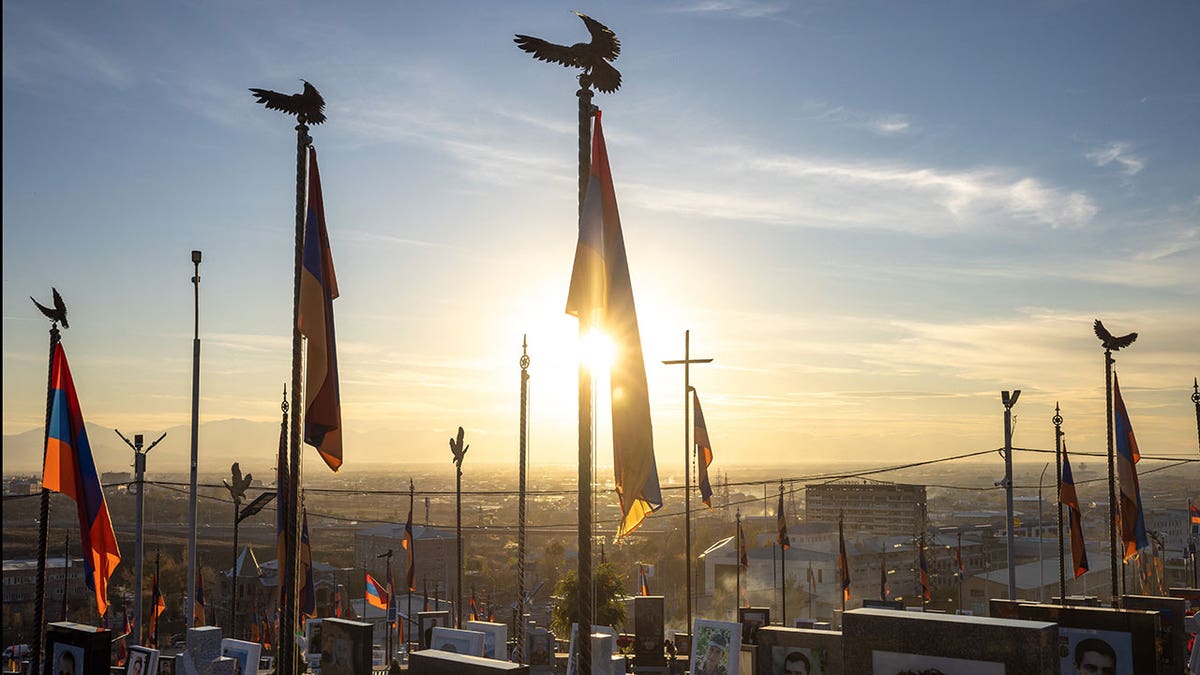
Citizens visit their loved ones at Yerablur Military Cemetery who were killed recently during September in Nagorno-Karabakh. (ANTHONY PIZZOFERRATO/Middle East Images/AFP via Getty Images)
NETANYAHU SURPRISES TRUMP WITH FORMAL NOBEL PEACE PRIZE NOMINATION DURING HISTORIC WHITE HOUSE MEETING
Trump, while on the campaign trail, highlighted the Armenia-Azerbaijan conflict and accused then-Vice President Kamala Harris of doing «NOTHING as 120,000 Armenian Christians were horrifically persecuted and forcibly displaced.»
Trump said he would «work to stop the violence and ethnic cleansing, and we will restore PEACE between Armenia and Azerbaijan.»
Trump has repeatedly championed his push to end conflict across the globe and in June celebrated a peace agreement that the U.S. helped broker between the Democratic Republic of Congo and Rwanda with an Oval Office signing.
«In a few short months, we’ve now achieved peace between India and Pakistan, India and Iran, and the DRC and Rwanda, and a couple of others, also,» Trump said during the event.
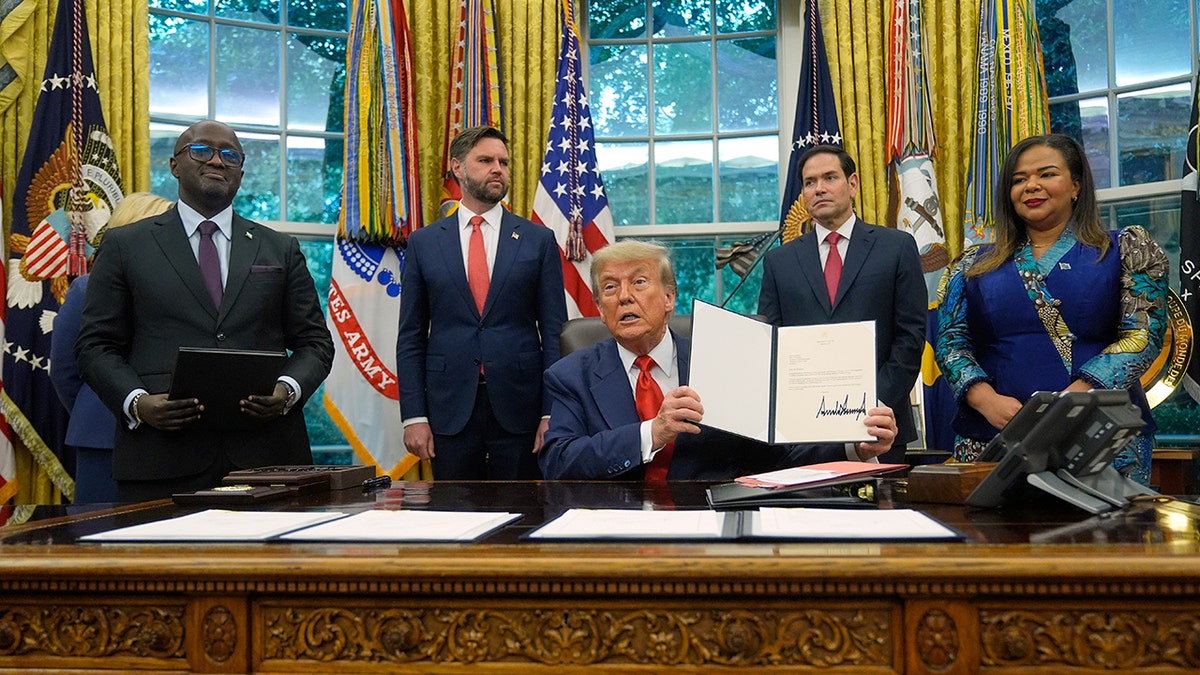
President Donald Trump holds up a signed document to present to Congo’s Foreign Minister Therese Kayikwamba Wagner, right, as Rwanda’s Foreign Minister Olivier Nduhungirehe, from left, Vice President JD Vance and Secretary of State Marco Rubio watch on Friday, June 27, 2025 in the Oval Office at the White House in Washington. (AP Photo/Manuel Balce Ceneta)
CLICK HERE TO GET THE FOX NEWS APP
The president – who has been nominated for a Nobel Peace Prize by Israeli Prime Minister Benjamin Netanyahu, as well as leaders from Pakistan and Cambodia – has on several occasions argued his credentials should be recognized under the international award that has been granted to four other U.S. presidents.
In a February meeting with Netanyahu, Trump said, «They will never give me a Nobel Peace Prize. It’s too bad. I deserve it, but they will never give it to me.»
The White House last week lobbied for the president to win the award come December when White House press secretary Karoline Leavitt said, «It’s well past time that President Trump was awarded the Nobel Peace Prize.»
donald trump,asia world regions,world,conflicts
INTERNACIONAL
Alemania suspende la venta de armas a Israel: fuerte condena internacional al plan israelí de tomar ciudad de Gaza
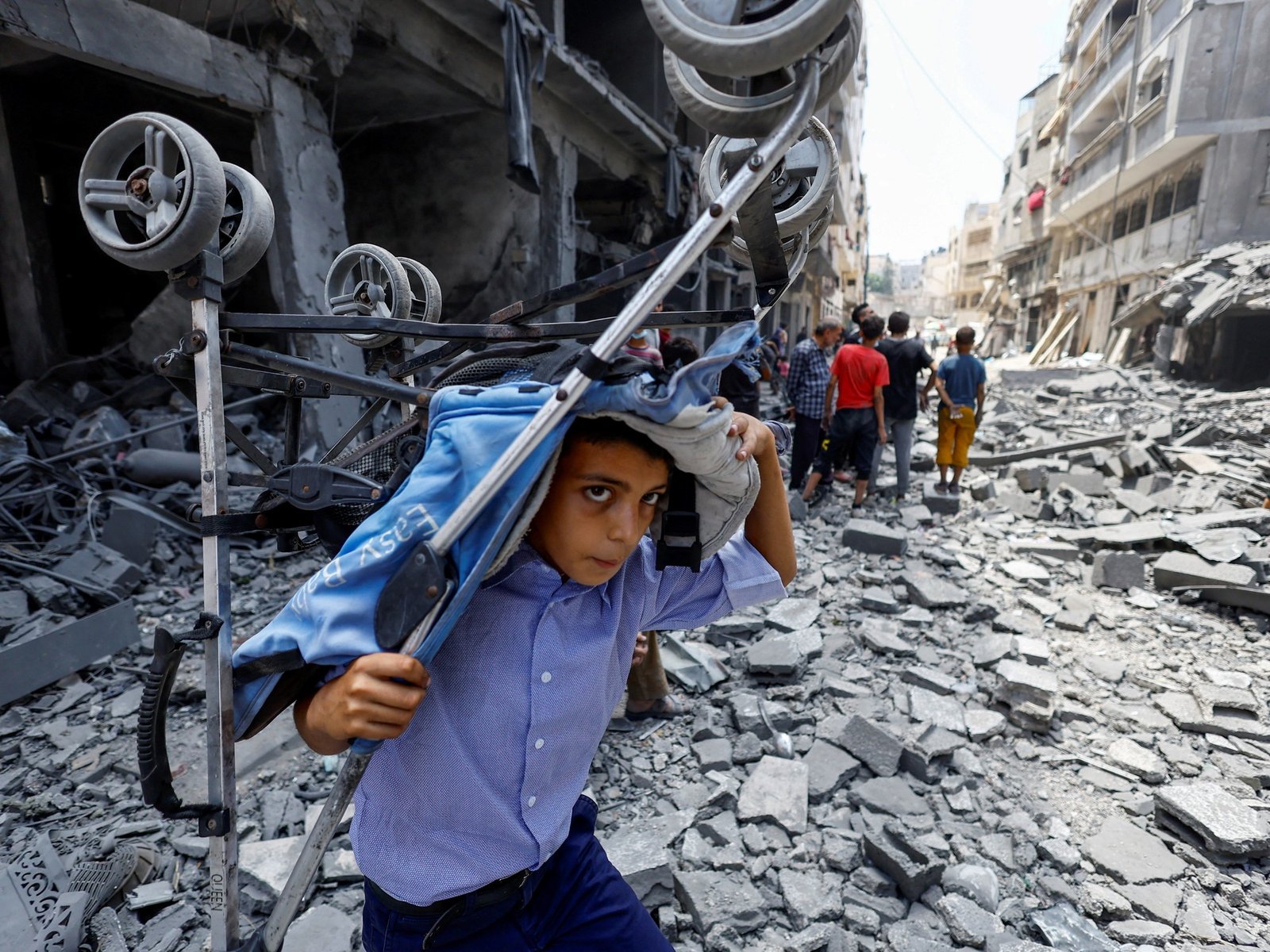
Ursula Von der Leyen: «Israel debe reconsiderar la medida»
Condena de Turquía
Más reacciones: China pide una alto el fuego
Franja de Gaza,Israel

 CHIMENTOS3 días ago
CHIMENTOS3 días agoMalas noticias para Wanda Nara: por qué la bajaron misteriosamente de MasterChef: «No va a salir este año»

 POLITICA3 días ago
POLITICA3 días agoAxel Kicillof reclamó ante la Corte Suprema $12 billones que le adeuda Nación

 POLITICA3 días ago
POLITICA3 días agoSebastián Pareja justificó el armado de listas de LLA en la Provincia: “El desafío era dar una opción diferencial”









